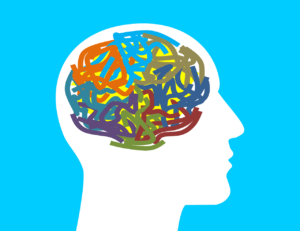Healthy Eating Tips – In today’s fast-paced world, maintaining a healthy diet can sometimes feel like a daunting task. However, the benefits of healthy eating are undeniable. Healthy eating is not about strict dietary limitations, staying unrealistically thin, or depriving yourself of the foods you love. Instead, it’s about feeling great, having more energy, improving your health, and stabilizing your mood.

Balanced Diet
A balanced diet is key to promoting good health and well-being. It involves eating a variety of foods in the right proportions to ensure your body gets all the essential nutrients it needs to function properly. A balanced diet includes a mix of fruits, vegetables, whole grains, lean proteins, and healthy fats. It’s also important to practice portion control and moderation to avoid overeating.
Fruits and Vegetables
Fruits and vegetables are nutritional powerhouses packed with vitamins, minerals, fiber, and antioxidants. They help boost immunity, support digestion, and reduce the risk of chronic diseases such as heart disease, diabetes, and cancer. Aim to fill half your plate with fruits and vegetables at every meal, and opt for a colorful variety to maximize nutrient intake.
Whole Grains
Whole grains are rich in fiber, vitamins, and minerals, and provide sustained energy to keep you feeling full and satisfied. Examples of whole grain foods include brown rice, quinoa, whole wheat bread, and oats. Try swapping refined grains for whole grains whenever possible to reap the health benefits.
Lean Proteins
Protein is essential for building and repairing tissues, supporting immune function, and maintaining muscle mass. Choose lean protein sources such as chicken, turkey, fish, tofu, beans, and lentils. Limit intake of red and processed meats, which have been linked to an increased risk of certain diseases.
Healthy Fats
Not all fats are created equal. Healthy fats, such as those found in avocados, nuts, seeds, and olive oil, are important for brain health, hormone production, and absorbing fat-soluble vitamins. Incorporate these healthy fats into your diet while minimizing intake of saturated and trans fats found in fried foods, baked goods, and processed snacks.
Hydration
Staying hydrated is crucial for overall health and well-being. Water helps regulate body temperature, flush out toxins, and transport nutrients to cells. Aim to drink at least 8 glasses of water a day, and more if you’re physically active or live in a hot climate. You can also stay hydrated by consuming hydrating foods such as fruits, vegetables, and soups.
Limiting Processed Foods and Added Sugars
Processed foods and added sugars contribute to inflammation, weight gain, and an increased risk of chronic diseases. Read food labels carefully and opt for whole, unprocessed foods whenever possible. Limit sugary beverages, desserts, and snacks, and satisfy your sweet tooth with natural sources of sweetness like fruits.
Meal Planning and Preparation
Meal planning and preparation can save time, money, and stress while ensuring you make healthier choices throughout the week. Take time to plan your meals, create a shopping list, and prep ingredients ahead of time. Batch cooking and meal prepping can make it easier to stick to your healthy eating goals, even on busy days.
Mindful Eating
Mindful eating involves paying attention to the sensory experience of eating and being present in the moment. Practice mindful eating by savoring each bite, chewing slowly, and listening to your body’s hunger and fullness cues. This can help prevent overeating and promote a healthier relationship with food.
Eating Out and Social Situations
Eating out and social gatherings often involve indulgent foods and drinks, making it challenging to stick to your healthy eating plan. However, you can still make smart choices by scanning menus for healthier options, choosing smaller portions, and practicing moderation. Focus on enjoying the company of others rather than fixating on food.
Listening to Your Body
Tune into your body’s signals of hunger, fullness, and satisfaction. Eat when you’re hungry and stop when you’re comfortably satisfied, rather than relying on external cues or strict meal times. Learn to differentiate between physical hunger and emotional hunger, and find alternative ways to cope with stress or boredom.
Stress Management and Its Impact on Eating Habits
Stress can trigger emotional eating and unhealthy food cravings, leading to poor dietary choices and weight gain. Practice stress management techniques such as deep breathing, meditation, yoga, or spending time in nature. By managing stress effectively, you can reduce the urge to turn to food for comfort and support.
Physical Activity and Nutrition
Nutrition and physical activity go hand in hand when it comes to overall health and well-being. Fuel your body with nutritious foods to support your workouts and recover effectively. Engaging in regular physical activity can also help regulate appetite, improve mood, and boost energy levels. Aim for a combination of cardiovascular exercise, strength training, and flexibility exercises to achieve a well-rounded fitness routine.
Celebrating Progress and Maintaining Motivation
As you embark on your journey towards healthier eating habits, it’s important to celebrate your progress and stay motivated along the way. Set realistic goals that are specific, measurable, achievable, relevant, and time-bound (SMART). Celebrate small victories, such as trying a new healthy recipe or choosing a nutritious snack over a less healthy option.
Remember that setbacks are a natural part of the process, and it’s okay to indulge occasionally or veer off track. The key is to refocus on your goals and make healthier choices moving forward. Surround yourself with supportive friends and family members who encourage and motivate you to stay on course.
Conclusion
In conclusion, adopting healthy eating habits is essential for optimizing your health, improving your quality of life, and reducing your risk of chronic diseases. By following these tips for healthy eating, you can nourish your body, boost your energy levels, and feel your best every day. Remember to prioritize variety, balance, and moderation in your diet, and listen to your body’s hunger and fullness cues. With a mindful approach to eating and a commitment to making nutritious choices, you can enjoy a lifetime of health and wellness.
FAQs (Frequently Asked Questions)
1. How can I incorporate more fruits and vegetables into my diet?
- Try adding sliced fruit to your breakfast cereal or yogurt.
- Snack on raw veggies with hummus or guacamole.
- Incorporate vegetables into soups, stews, stir-fries, and salads.
2. Are there any healthy alternatives to processed snacks?
- Opt for whole food snacks like nuts, seeds, Greek yogurt, or fruit.
- Make your own trail mix with nuts, seeds, and dried fruit.
- Choose air-popped popcorn or whole grain crackers with nut butter.
3. How can I stay hydrated if I don’t like plain water?
- Infuse your water with slices of citrus fruits, berries, or cucumber.
- Drink herbal teas or flavored sparkling water.
- Eat hydrating foods like watermelon, cucumber, and oranges.
4. What are some tips for making healthier choices when dining out?
- Look for dishes that are grilled, steamed, or roasted rather than fried.
- Ask for dressings and sauces on the side to control portions.
- Choose restaurants that offer healthier options or customizable menus.
5. How can I maintain my motivation to eat healthy in the long term?
- Set realistic goals and celebrate your achievements along the way.
- Surround yourself with supportive friends and family members.
- Focus on how good healthy eating makes you feel physically and mentally.




